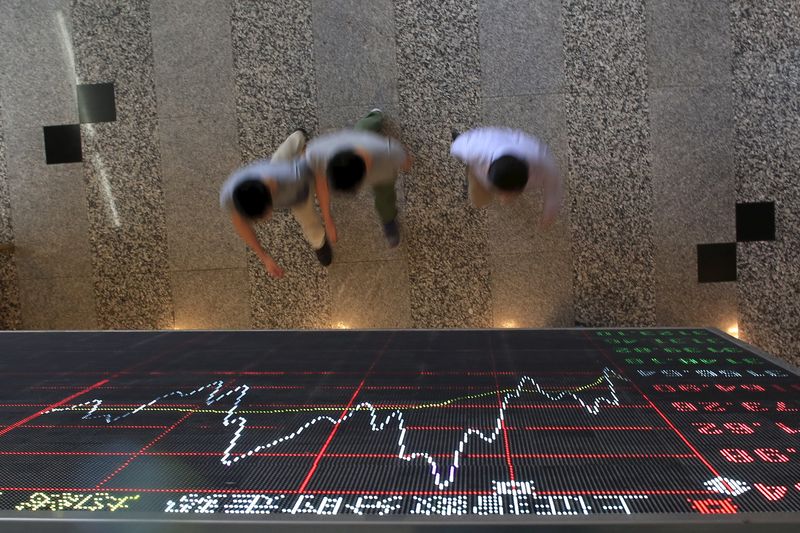This post was originally published on this site
https://i-invdn-com.investing.com/news/LYNXNPEB8R00J_M.jpg
Fed Chair Jerome Powell is set to testify before Congress on Wednesday, potentially offering more cues on monetary policy after the central bank paused its rate hike cycle but flagged at least two more rate hikes later in the year.
China’s Shanghai Shenzhen CSI 300 and Shanghai Composite indexes fell 0.8% and 0.5%, respectively, while Hong Kong’s Hang Seng index lost 0.9% as they retreated from strong gains made last week.
The People’s Bank of China is widely expected to further trim its benchmark loan prime rate on Tuesday, after the bank cut medium and short-term lending rates last week.
While the move triggered a strong rally in Chinese markets over the past week, they were still trading relatively lower for the year-to-date as concerns over slowing growth in the country persisted.
Goldman Sachs (NYSE:GS) slashed its economic growth outlook for China this week, joining a slew of other investment banks amid waning bets on an economic rebound in the country this year.
Economic readings for April and May showed that a Chinese rebound was running out of steam, despite the lifting of anti-COVID measures earlier this year.
Markets also took little support from high-level talks between U.S. and Chinese ministers, as both sides flagged little progress towards defusing strained tensions between the world’s largest economies.
Losses in China spilled over into other markets, with South Korea’s KOSPI down 0.8%, while Philippine stocks led losses across Southeast Asia with a 1% decline.
Japan’s Nikkei 225 fell 0..1%, while the broader TOPIX added 0.1%, pausing after rallying to fresh 33-year highs last week.
Australia’s ASX 200 was among the few outperformers for the day, rising 0.7% on strength in heavyweight banking and financial stocks.
Broader Asian markets kept to a flat-to-low range, ahead of a testimony by Fed Chair Jerome Powell before Congress on Wednesday.
Investors were on edge over any more hawkish signals on monetary policy, particularly after the Fed flagged a higher terminal interest rate this year.
Rising interest rates bode poorly for Asian markets, given that they limit foreign capital flows into the region and also diminish the appeal of risk-driven assets.
Beyond Powell, several other Fed officials are also set to talk this week.

